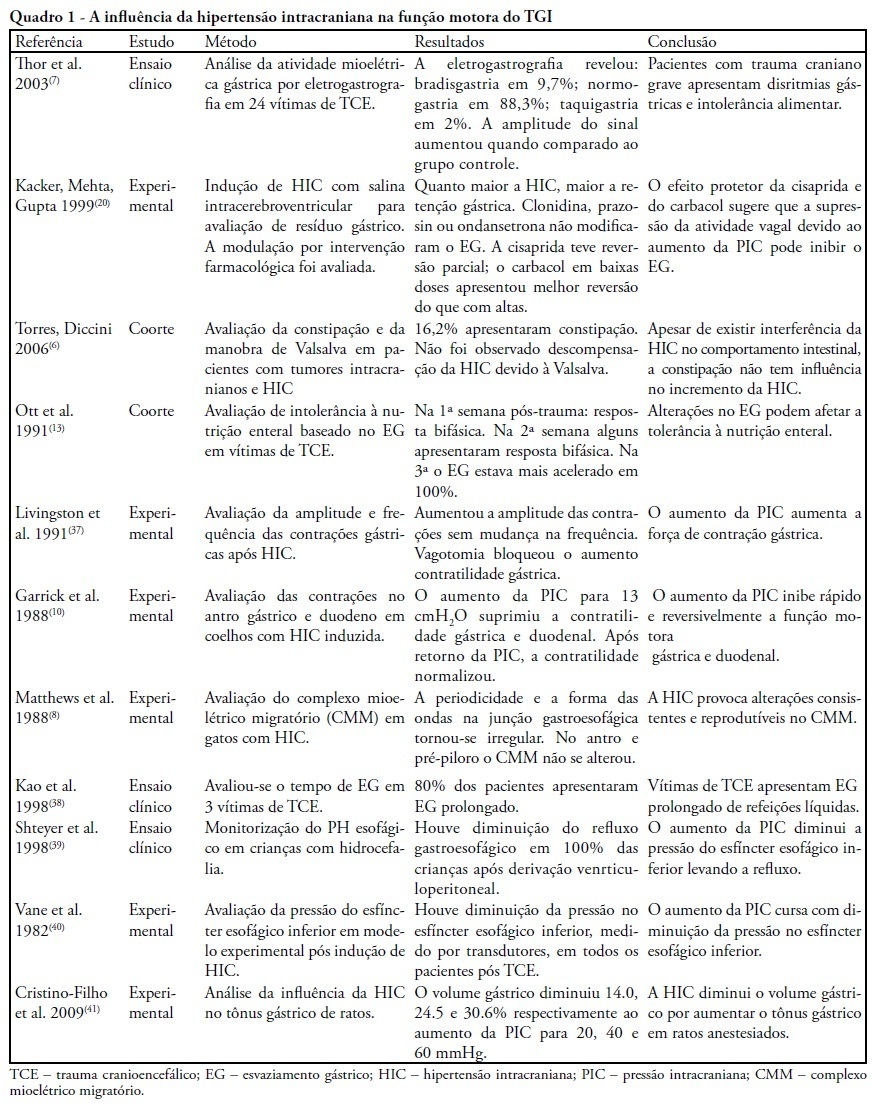
Subarachnoid hemorrhage can increase intracranial pressure, causing significant morbidity. Acute gastric dilation and delayed gastric emptying are commonly seen in patients with intracranial hypertension, and correction of these gastric abnormalities can facilitate the recovery of patients with brain injuries. We conducted a literature review of both national and international health sciences medical journals and electronic libraries spanning the last twenty-eight years and focused on the brain, gut motility and gastric emptying functional axis either in experimental animal models of brain injury or patients with acute cerebral injuries. Decreased parasympathetic tonus is a potential cause of intracranial hypertension-related food intolerance. Changes in gastrointestinal transit after a brain injury follow a biphasic pattern: an initial phase of accelerated gastric emptying and a late stage of intestinal lethargy. Changes in the physiology underlying gut motility may be essential for homeostatic stabilization in hemodynamically unstable patients. Research studies are necessary to understand the difficult management of intensive care patients with intracranial hypertension secondary to subarachnoid hemorrhages resulting from traumatic brain injuries or rupture of a cerebral aneurysm. Increased intracranial pressure induces massive increases in sympathetic activity, which is responsible for many of the peripheral systemic and gastrointestinal symptoms. Brain injuries leading to significant increases in intracranial pressure result in delayed gastrointestinal emptying due to autonomic nervous system changes.
Search
Search in:


Comments